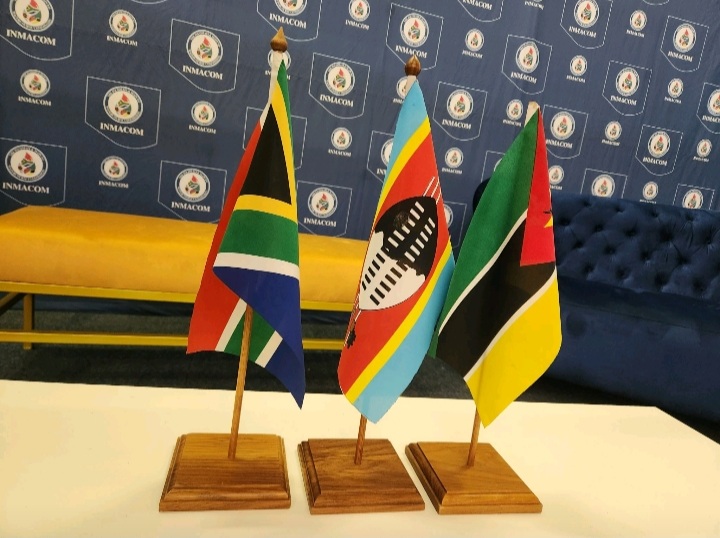The Incomati & Maputo Watercourse Commission Planning for Climate Disasters, predicted El Nino

By Phumelele Mkhonta
MBABANE- Eswatini, Mozambique, and South Africa's readiness to mitigate and adapt to the predicted El Nino might be boosted.
This is because the newly established INMACOM (Incomati and Maputo Water Commission) is currently in the process of compiling a Disaster Management Plan. This is according to the INMACOM Interim Executive Secretary, Edward Mswane, in response to a brief questionnaire that was sent to him.
The purpose of the inquiry was to establish how the new commission would benefit the three countries in climate disasters- especially the predicted El Nino.
According to the CSIR (Council of Scientific and Industrial Research), the strongest seasonally varying ocean-atmosphere signal is known as the El Niño Southern Oscillation (ENSO) signal, and it is notorious for its ability to impact global weather. El Niño has historically been associated with record heat temperatures and droughts in summer rainfall regions of southern Africa.
The Incomati and Maputo Watercourse Commission (INMACOM) is a transboundary river basin organization operating in the Incomati and Maputo basins. INMACOM was officially established on November 18, 2021. Prior to that, INMACOM existed as the Tripartite Permanent Technical Committee (TPTC) which was established in 1983. The formation of INMACOM as a River Basin Organisation (RBO) is aligned with SADC principles on the management of shared transboundary water resources.
In his response, Mswane said once El Nino or drought has been confirmed, the Member States would convene to discuss on how they would manage the drought. “Usually, water rationing or curtailing is applied in irrigation. INMACOM is currently doing a Disaster Management Plan study in the basins. The disasters we are looking at are floods, drought, and water pollution. “We are cognizant of the fact that climate change is contributing to these disasters. This study will come up with a plan on how the countries will communicate in the event these disasters befall them and how they will manage the situation”, he said.
“Another study that is currently being carried out by INMACOM is the comprehensive water sharing agreement. Some of the effects of climate change that we have experienced in our basins over the years is stream flow reduction,” said Mswane.
He further stated that this study would assess if the agreed figures on water sharing or allocation in the three countries were still relevant and make recommendations if there was a need to amend them.“INMACOM’s vision is to be a leading transboundary water management institution that promotes sustainable and equitable management and protection of the shared water resources in the Maputo and Incomati river basins. The mandate we have as a River Basin Organisation (RBO) is to ensure that the Member States get their share of the water in the two rivers.

INMACOM Interim Executive Secretary, Mr Edward Mswane
“By so doing, the National water institutions like ESWADE in Eswatini get their water allocation which they further allocate to their farmers, and by so doing the communities at grassroots level are reached and poverty is alleviated. The same applies in Mozambique and South Africa,” explained the Interim Executive Secretary to this reporter.
Worth noting is that in the years 2015 and 2016, the Kingdom of Eswatini was hit hard by El Nino- which resulted in a famine in the Southern parts of the country.
Agricultural activities were assassinated in the country and the residents of the Capital, Mbabene, were subjected to water rationing- where they would go four days without water.
Addressing the predicted El Nino, the Deputy Prime Minister of Eswatini, Themba Masuku, said the World Meteorological Organization (WMO) recently released an update with the likelihood of El Nino developing and living into the coming summer which is coming after three years of relatively good rainfall as a result of dominant La Nina which is believed to have come to an end. “We are informed that El Nino has an opposite effect on weather and climate patterns in many regions of the world to La Nina and that it would likely fuel higher global temperatures.

Deputy Prime Minister of Eswatini, Mr Themba Masuku
“The drought led to major losses in the agriculture, sector, diminished water supply, and significantly affected national food security and a cumulative estimated cost of E3.843 billion to the economy, which is equivalent to 7.01% of the country’s gross domestic product in 2016 or 18.58% of government expenditure in Eswatini only,” he explained.
The Eswatini DPM then revealed that they had been informed by the Ministry of Agriculture that the estimated harvest this current year was less than that required to meet the grain demand for the Eswatini. “This also adds to the food security situation in the country which is likely to be worsened by the El Nino threat. We are grateful to His Majesty King Mswati III who has signed bilateral agreements with countries like Zambia on trade, and we encourage the private sector to consider importing more grain into the country before the food grain prices escalate.
It is paramount to recognize the significance of implementing climate change adaptation measures and disaster preparedness, which are essential for mitigating the consequences of El Nino.
The author is a journalist at the Climate Environment News in Eswatini

























































